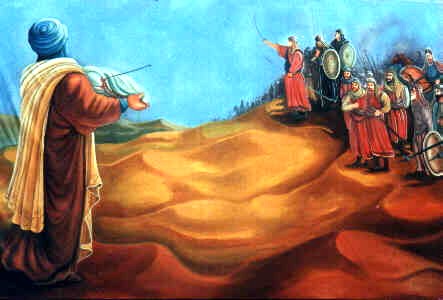به زبان فارسی
PICTORY
LATEST MUSIC
SEARCH
The Paradox of Shi'ism: political defeat
by Tabarzin07-Sep-2011
A wonderful quote from Hamid Dabashi's ISLAMIC LIBERATION THEOLOGY: Resisting the Empire, p. 68. Brackets are mine.
| Recently by Tabarzin | Comments | Date |
|---|---|---|
| BBC Speechless As Trader Tells The Truth | 6 | Sep 26, 2011 |
| Halt the execution of Troy Davis | - | Sep 20, 2011 |
| Anonymous planning to take down Facebook on Nov. 5 2011 | 2 | Sep 10, 2011 |
RECENT COMMENTS
IRANIANS OF THE DAY
| Person | About | Day |
|---|---|---|
| نسرین ستوده: زندانی روز | Dec 04 | |
| Saeed Malekpour: Prisoner of the day | Lawyer says death sentence suspended | Dec 03 |
| Majid Tavakoli: Prisoner of the day | Iterview with mother | Dec 02 |
| احسان نراقی: جامعه شناس و نویسنده ۱۳۰۵-۱۳۹۱ | Dec 02 | |
| Nasrin Sotoudeh: Prisoner of the day | 46 days on hunger strike | Dec 01 |
| Nasrin Sotoudeh: Graffiti | In Barcelona | Nov 30 |
| گوهر عشقی: مادر ستار بهشتی | Nov 30 | |
| Abdollah Momeni: Prisoner of the day | Activist denied leave and family visits for 1.5 years | Nov 30 |
| محمد کلالی: یکی از حمله کنندگان به سفارت ایران در برلین | Nov 29 | |
| Habibollah Golparipour: Prisoner of the day | Kurdish Activist on Death Row | Nov 28 |




And even more interesting...
by Tabarzin on Wed Sep 07, 2011 09:03 PM PDTMore
by Tabarzin on Wed Sep 07, 2011 08:44 PM PDTThe success of the Islamic revolution in Iran over the last two decades is the most recent example marking its political predicament that when it has succeeded politically it has, ipso facto, reversed its own legitimacy. Shi’ism cannot be turned into an official ideology of repression without immediately negating its own very reason for being. The key operative concept constitutional to Shi’ism is that of mazlumiyyat, ‘‘having been wronged,’’ or ‘‘having been tyrannized.’’ The paradigmatic expression of this key operative concept is the third Shi’i martyred Imam, al-Husayn, whose very honorific appellation is Husayn-e Mazlum (‘‘Husayn the Tyrannized’’). So far as Shi’ism is on the side of the oppressed it is in its full revolutionary blossoming. The instant that it becomes fully institutionalized into an apparatus of power it ipso facto mutates into a most brutal theocratic tyranny. All its revolutionary zeal now comes back to haunt and turn it into a monstrous negation of itself. This is the defining moment of Shi’ism because it has never surpassed its Karbala paradox. Not now, not ever. The defeat of the third Shi’i Imam in the Battle of Karbala in 680 is constitutional to its moral and material culture. If Imam Husayn had succeeded in Karbala, Shi’ism would have had an entirely different disposition vis-a`-vis political power – and thus the origin of the Shi’i myth that Imam Husayn was divinely ordained to be defeated in Karbala for Islam to survive. The defeat of Imam Husayn in the Battle of Karbala has made Shi’ism both a religion of protest and a moral manifesto against all successful constitutions of power. Shi’ism covets what it cannot attain, and thus it is a religion of protest. Shi’ism cannot attain what it covets, and thus it is a moral manifesto against all political power. Between those two normative opposites, Shi’ism dwells as a paradox, pp.68-9